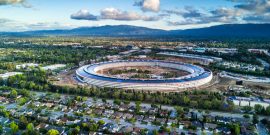Today’s “socialist” turn reflects a desperate desire to stop the clock—and a wounded recognition that the hands will keep on spinning.
James Poulos
By the 1990s, space in the American imagination had become, outside the precincts of Trekkies and Jedi enthusiasts, fully dystopian.
Growth is only being demonized because it has been disenchanted, courtesy in part of digital technology.
Those shaped by the televisual imagination, like author James Williams, were staggeringly naïve and optimistic at the time of social media’s advent.
Outsiders often see more about us than we do ourselves: James L. Nolan shows us what Tocqueville, Weber, Chesterton, and Qutb noticed.
Jurassic Park's question remains: is technology subject to our control anymore?
Michael Anton is right that our politics and culture will eventually “begin to draw blood” from the gods of entertainment in Silicon Valley.
Many predicted that tabletop games like Dungeons & Dragons would disappear, but this discounts the power of memory and the need for community.
The machinery of enlightenment, in short, requires of liberalism a new digital immune system.
James Poulos is Executive Editor of The American Mind, a publication of the Claremont Institute. He is the author of The Art of Being Free (St. Martin's Press, 2017), contributing editor of American Affairs, and a fellow at the Center for the Study of Digital Life.








